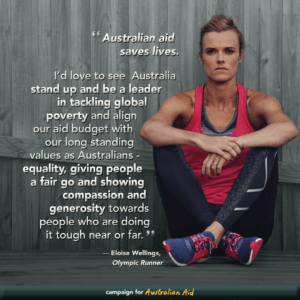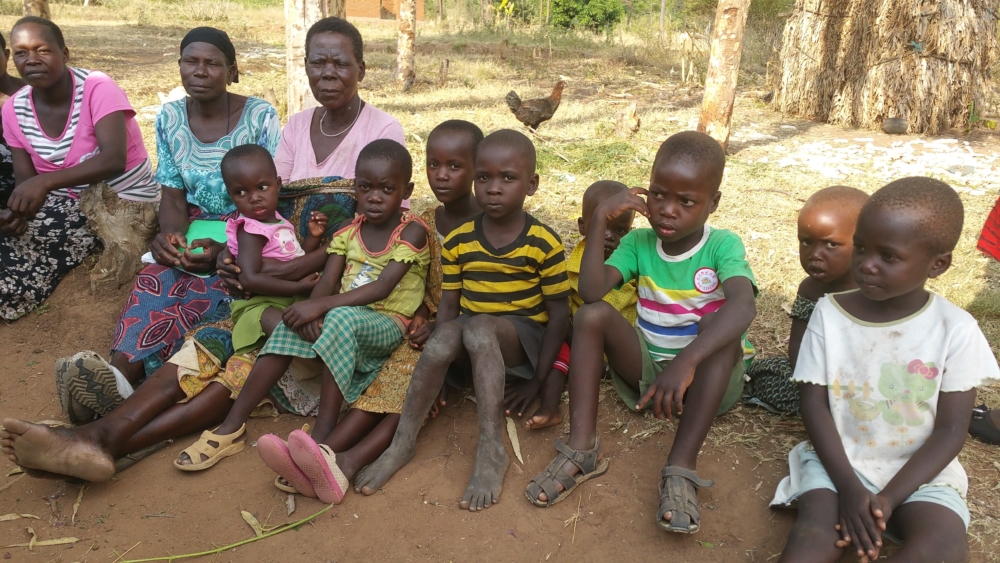Australian aid finally becomes an election issue
Labor party pledges to restore aid budget, Coalition yet to commit
Australian aid advocates are praising the Labor Party’s commitment to restore the aid budget if successful at the Federal election and calling on the Coalition to match the pledge.
In costings released today, Labor has said it will rebuild Australia’s international development by spending about $1.6 billion more over four years than the current trajectory set out by the government. This would see Australia’s international development spending reach 22 cents for every $100 of Australian national income by 2022-23, rather than 19 cents under current government plans.
The announcement is a significant breakthrough for many community leaders who have fought for the aid budget to be lifted for several years, notably Christian leaders such as Micah Australia’s efforts and those in the Campaign for Australian Aid.
Micah Australia’s Director Tim Costello said he was “grateful” that, with Labor’s announcement, “finally the cuts have stopped”. Speaking to Eternity from the UK, he said he was “struck by how stark the contrast” was between Australia’s current aid budget and the “generosity of the British government” with an aid budget of 0.7 per cent of Gross National Income (compared with what is currently 0.22 per cent and scheduled to decrease by the Coalition government).
“We have been so mean as a nation,” Costello remarked.
The Labor Party has said it will rebuild Australia’s international development by spending about $1.6 billion more over four years than the current trajectory set out by the government.
Micah’s campaign director Matt Darvas said the announcement showed that “Labor has heard the voice of thousands of Australians who believe we can and must do more to love our poorest neighbours. Australian aid literally saves lives. It immunises children, it empowers women and it prepares communities for resilience in natural disasters.”
“It shows that Labor understands that a strong aid budget is not just the right thing to do morally; it’s also the smart thing in that it strengthens key geopolitical relationships, stimulates trade with developing economies in the region, and ensures peace and stability through greater cooperation.”
In the Campaign for Australian Aid, Christian leaders make up more than half of the names of about 60 community and NGO leaders who have fronted the campaign. Anglican, Pentecostal, Uniting, Baptist and Catholic and the Uniting Church are all represented in the group, which includes Paul O’Callaghan (CEO, Caritas Australia), Ben Thurley (CEO, International Nepal Fellowship), John Beckett (founder and CEO of SEED), Michael Frost (founder of the Tinsley Institute at Morling College) and prominent public Christian historian and author John Dickson.
Jody Lightfoot, director of Campaign for Australian Aid, responded positively to Labor’s announcement saying, “Labor has taken a big step to rebuilding Australia’s international development. Now we urge both major parties to grow our international development to 0.5 per cent of GNI within five years – as recommended by the bipartisan parliamentary committee on Foreign Affairs, Defence and Trade”.

Olympic runner Eloise Wellings advocates fronts the Campaign for Australian Aid
CEO of the Australian Council for International Development (ACFID) – Australia’s peak-body for international development NGOs – Marc Purcell said, “Labor has set a positive trajectory for international development which will leave Australia better placed to address the root causes of crises and challenges that undermine global peace and stability.
“After relentless cuts, this lift would get Australia’s international development spending out of the doldrums and back on a surer footing. Coupled with the vision for the program outlined by the Shadow Foreign Affairs Minister, Labor would be recasting and strengthening the international development program to play a more central role in Australian foreign policy.
“After relentless cuts, this lift would get Australia’s international development spending out of the doldrums and back on a surer footing.” – Marc Purcell, CEO, Australian Council for International Development
Purcell also called on the Coalition to commit to restoring the Australian aid budget, saying that “long-lasting political unity on increasing spending is required to ensure a predictable and principled development cooperation program. Modern bipartisanship on foreign policy has been faltering, but it is essential for international development where funding predictability and longevity is crucial for effectiveness.
“The Coalition must lift their vision from the deteriorating budget they have set out. We are already at the lowest levels in Australia’s history and if we are to develop stronger international relationships we must reinvest.”
However, ACFID noted that the trajectory Labor has outlined means the party would not meet its target of spending 0.5 per cent of Gross National Income (GNI) on international development in any reasonable time frame.
“The increases would simply be too slow to reach the 0.5 per cent funding target. Australia needs an accelerated timetable if it’s to reach 0.5 per cent, and the internationally agreed goal of 0.7 per cent by 2030,” Purcell said.
If implemented by a Labor government, the move would bring an end to six consecutive cuts to Australia’s Official Development Assistance (ODA) under the Coalition. Under a Coalition government, ODA would continue to fall to 0.19 per cent by 2022-23. The Greens have committed to increasing ODA to 0.7 per cent by 2030.
Email This Story
Why not send this to a friend?


